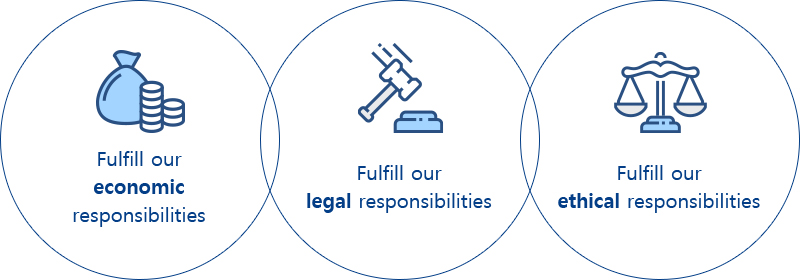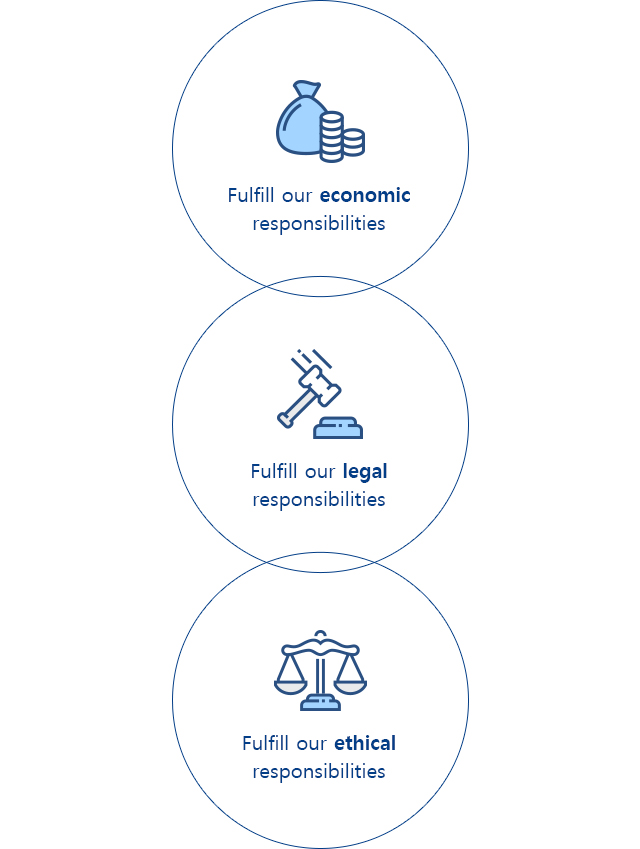Ethical Management
Corporate Ethics
Ethical Management of Hyundai GLOVIS


Ethical management means business activities that focus on preparing and having various programs and systems in place to practice corporate ethics. It also means that a company recognizes fulfilling not only its economic and legal responsibilities but also its ethical responsibilities as its basic obligation and that complies autonomously with corporate ethics.
Ethics management is not a mere measure to simply control unjust behaviors of the employees, and is not a trendy term that will lose its value someday.
Ethical management is not a means to control corruptions of directors, officers or employees, nor is it simply a temporary buzzword. It involves business activities aimed at correcting bad practices or cost structures within a company, thereby improving competitiveness and creating new economic value. The ultimate goal of ethical management is to maximize profits and contribute to society through such profits.
Ethics management is not a mere measure to simply control unjust behaviors of the employees, and is not a trendy term that will lose its value someday.
Ethical management is not a means to control corruptions of directors, officers or employees, nor is it simply a temporary buzzword. It involves business activities aimed at correcting bad practices or cost structures within a company, thereby improving competitiveness and creating new economic value. The ultimate goal of ethical management is to maximize profits and contribute to society through such profits.
Ethical management not only has an influence on maximizing profits and improving the company’s reputation by earning the trust of all their stakeholders, but it is also essential in the survival of a company. While those who earn trust through transparent management are growing as successful companies, those who don’t are lagging behind in the global market.
Accordingly, the international society has been establishing policies to promote ethical management.
This means businesses have no choice but to have an efficient ethical management system in place, with ethical management now becoming the basis of corporate management.
Hyundai GLOVIS will strengthen our competitiveness by correcting irrational elements and practices in our business from an ethical perspective. We will also actively practice ethical management to become a company trusted by all stakeholders.
Accordingly, the international society has been establishing policies to promote ethical management.
This means businesses have no choice but to have an efficient ethical management system in place, with ethical management now becoming the basis of corporate management.
Hyundai GLOVIS will strengthen our competitiveness by correcting irrational elements and practices in our business from an ethical perspective. We will also actively practice ethical management to become a company trusted by all stakeholders.






